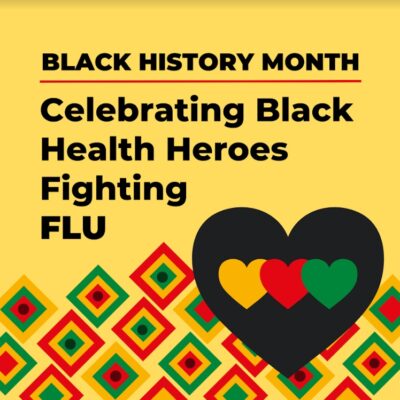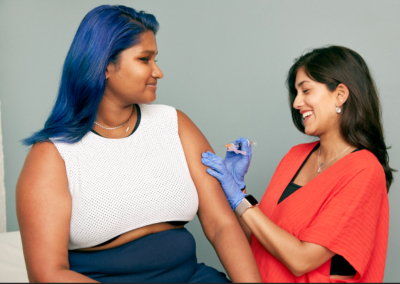- Expert Commentary
InFLUencer Dr. Anderson Provides an Overview of Flu

Dr. Michael Anderson is one of FFF’s medical advisors and a practicing adult infectious disease physician located in Kanakee, Illinois. He is board certified in Infectious Disease and Internal Medicine by the American Board of Internal Medicine. As part of his duties at Metro Infectious Disease Consultants, LLC in Kanakee, IL, Dr. Anderson performs inpatient and outpatient consultations and follow-up care for adult immunocompromised patients (e.g., diabetes, HIV/AIDS), manages outpatient parenteral anti-infective therapy and biological infusions, and serves as the supervising physician for physician assistants.

Influenza (flu) is a virus that can cause mild to severe illness, is common, and may potentially result in a serious infection. Flu symptoms include fevers, chills, cough, sore throat, runny or stuffy nose, headache, body aches, and fatigue. Your medical provider may prescribe an antiviral medication. Most people recover in days, but some develop complications such as pneumonia which may also include infection with bacteria. Other complications include multi-organ failure, sepsis, and inflammation of the heart, brain, and muscles. It can be life-threatening and may result in death.
According to the Centers for Disease Control and Prevention (CDC), flu vaccination is recommended every year for everyone 6 months of age and older. The flu vaccine has been shown to prevent or reduce flu illnesses, doctor visits, hospitalizations, and missed work and school. Influenza can potentially result in serious complications, and flu vaccination can be lifesaving. Some people are at high risk of serious complications including young children, pregnant women, and people 65 years and older. Others at high risk are those with chronic health conditions including diabetes, heart and lung illnesses, and immunocompromised conditions (weakened immune system). Flu vaccination during pregnancy can protect the baby after birth for several months, and people who live with or care for infants should be vaccinated. Vaccination is important for healthcare workers and those who live with or care for high-risk individuals.
People should receive their vaccination before the viruses begin spreading in your community. It takes about two weeks after the vaccine is given for antibodies to develop. The CDC recommends vaccination before the end of October. Getting vaccinated later can still be beneficial and can be given at any time throughout the flu season. Data suggests that even if someone gets sick after vaccination, their illness may be milder.
![]() There are many other preventative measures that can be helpful. Avoid close contact with sick people. If you are sick, then limit contact with others as much as possible. The CDC recommends that you stay home for at least 24 hours after your fever has resolved (without the use of fever-reducing medicine), except to get medical care or for other necessities. Cover your nose and mouth when you cough or sneeze, and wash your hands afterward. In general, wash your hands with soap and water often, or use an alcohol-based hand sanitizer as an alternative. Handwashing cannot be reiterated enough. Avoid touching your eyes, nose, and mouth. Clean and disinfect objects and surfaces that may be contaminated.
There are many other preventative measures that can be helpful. Avoid close contact with sick people. If you are sick, then limit contact with others as much as possible. The CDC recommends that you stay home for at least 24 hours after your fever has resolved (without the use of fever-reducing medicine), except to get medical care or for other necessities. Cover your nose and mouth when you cough or sneeze, and wash your hands afterward. In general, wash your hands with soap and water often, or use an alcohol-based hand sanitizer as an alternative. Handwashing cannot be reiterated enough. Avoid touching your eyes, nose, and mouth. Clean and disinfect objects and surfaces that may be contaminated.
There are many other serious viral infections including respiratory syncytial virus (RSV) and coronaviruses such as the novel coronavirus (COVID-19), but I cannot emphasize enough the importance of influenza awareness and prevention. On a personal level, two of my young daughters had confirmed influenza in February of 2020. They received an antiviral medication and recovered. They did receive their flu vaccines in early fall of 2019, and I believe that it resulted in a less severe case for them. I will certainly continue to have my family vaccinated yearly, and I will continue to advocate to vaccinate other family members, friends, co-workers, and my patients including those who have immunocompromised conditions.
More information is available through the CDC on its website.


